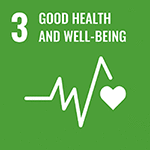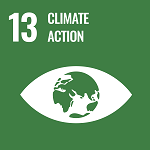Sustainability within IS
We develop key technologies that contribute in various ways to addressing the Grand Challenges of society.
Our theoretical and basic research provides key technologies in our core research areas. Much of the applied research we conduct is done in collaboration with companies and the public sector. In this research, the focus is often on challenges in the industrialized world and may not address the specific targets identified under the UN SDGs. I.e., we often target goals that are beyond the 2030 UN goals.
Examples of applied and targeted work towards sustainable development include:
Decision and Control Systems, DCS
Improving energy-efficiency in society. In addition to this broader perspective, the faculty is running several projects on smart grids, energy-efficient communications and computations, smart transport, and healthcare, to mention a few.
Information Science and Engineering, ISE
Signal processing and machine learning for biotech and health services. In particular, the Mabtech IRIS in collaboration with Mabtech AB contributing to SDG 3.3, and the collaboration with Karolinska on sepsis detection for preterm infants contributing to SDG3.2.
Micro and Nanosystems, MNS
Roughly half of our research is life science and medicine related, with specific focus on basic disease mechanisms and diagnostics and therapy of infectious diseases, cancer, and diseases of the nervous system.
We have several projects on beyond-5G telecommunication, all in the sub-THz frequency spectrum, in particular on high-data rate point-to-point communication networks for future network infrastructure. We have several remote-sensing projects exploiting THz frequencies, including a national project on space-borne earth observation environmental sensors.
We have several projects on sub-THz radar sensors for road safety, including traditional car radar but also emerging radar applications such as in-cabin monitoring and critical-road crossings surveillance.
Photonic CO2 sensors for environmental sensing and monitoring; next-generation space-borne sub-THz frequency radiometers for environmental sensing, atmospheric chemistry missions and weather satellites.
We are engaged in a project to develop plant-based sensors.
Robotics, Perception and Learning, RPL
Our research on breast cancer addresses UN SD goal 3. The current targets for this goal are focusing mostly on third world diseases and health issues. However, in large parts of the world cancer is one of the main causes of death.
Better utilization of the oceans for food and energy are goals in the project SMaRC. By automating the monitoring of Algae farms one can produce more while using fewer resources. Better georeferencing oceanographic measurements by correcting navigation using sonar will make that data of better quality for modelling the processes of global warming.
Speech, Music and Hearing, TMH
The EACare project aims at detecting signs of depression and dementia in elderly people through a spoken dialogue system. The FunkBot project aims at developing navigation services for people with cognitive disabilities. Both of these projects contribute to SDG3.










